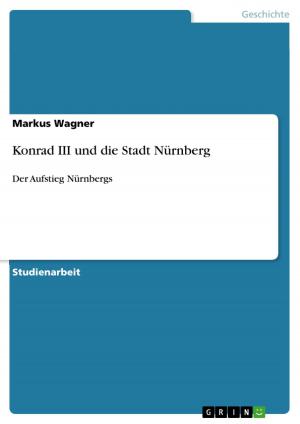Hard Eurosceptics can never be convinced of the case for European integration - or can they?
or can they
Nonfiction, Social & Cultural Studies, Political Science| Author: | Nataliya Gudz | ISBN: | 9783640184217 |
| Publisher: | GRIN Verlag | Publication: | October 8, 2008 |
| Imprint: | GRIN Verlag | Language: | English |
| Author: | Nataliya Gudz |
| ISBN: | 9783640184217 |
| Publisher: | GRIN Verlag |
| Publication: | October 8, 2008 |
| Imprint: | GRIN Verlag |
| Language: | English |
Seminar paper from the year 2007 in the subject Politics - International Politics - Topic: European Union, grade: 1.5, College of Europe, Natolin Campus (EU Institutions, Politics and Policies), language: English, abstract: Signed fifty years ago, the Treaty of Rome proclaimed an 'ever closer union' by 'establishing a common market and progressive approximation of the economic policies of member states' . This approximation had, however, a negative side effect -opposition to market integration, and after the sequence of enlargements - ardent resistance to any further European integration. Moreover, since the Maastricht Treaty, Eurosceptics have exploited a new battleground: 'defence of national community' in response to the erosion of national sovereignty and to the heightened job insecurity caused by market unification and liberalization process. As enlargement process was taking its course, Euroscepticism grew into a potent feature of the political landscape across the EU, by not only shaking confidence in the process of further enlargement, but also 'provoking several attempts to re-theorize the process of European integration' . Thus, for example, 'soft eurosceptics' (definition proposed by Paul Taggart and Aleks Szczerbiak ) opposed to the 'EU's current or future planned trajectory based on the future extension of competencies' , whereas the main objective of their 'hard counterparts' was 'tantamount to being de facto opposed to EU membership' . In this paper we'll try to analyse a phenomenon of hard Euroscepticism in the European Union by presenting Danish and British cases. We'll demonstrate that sometimes hard Eurosceptic parties can be convinced of the case for European integration, despite their ardent anti-EU positions.
Seminar paper from the year 2007 in the subject Politics - International Politics - Topic: European Union, grade: 1.5, College of Europe, Natolin Campus (EU Institutions, Politics and Policies), language: English, abstract: Signed fifty years ago, the Treaty of Rome proclaimed an 'ever closer union' by 'establishing a common market and progressive approximation of the economic policies of member states' . This approximation had, however, a negative side effect -opposition to market integration, and after the sequence of enlargements - ardent resistance to any further European integration. Moreover, since the Maastricht Treaty, Eurosceptics have exploited a new battleground: 'defence of national community' in response to the erosion of national sovereignty and to the heightened job insecurity caused by market unification and liberalization process. As enlargement process was taking its course, Euroscepticism grew into a potent feature of the political landscape across the EU, by not only shaking confidence in the process of further enlargement, but also 'provoking several attempts to re-theorize the process of European integration' . Thus, for example, 'soft eurosceptics' (definition proposed by Paul Taggart and Aleks Szczerbiak ) opposed to the 'EU's current or future planned trajectory based on the future extension of competencies' , whereas the main objective of their 'hard counterparts' was 'tantamount to being de facto opposed to EU membership' . In this paper we'll try to analyse a phenomenon of hard Euroscepticism in the European Union by presenting Danish and British cases. We'll demonstrate that sometimes hard Eurosceptic parties can be convinced of the case for European integration, despite their ardent anti-EU positions.















